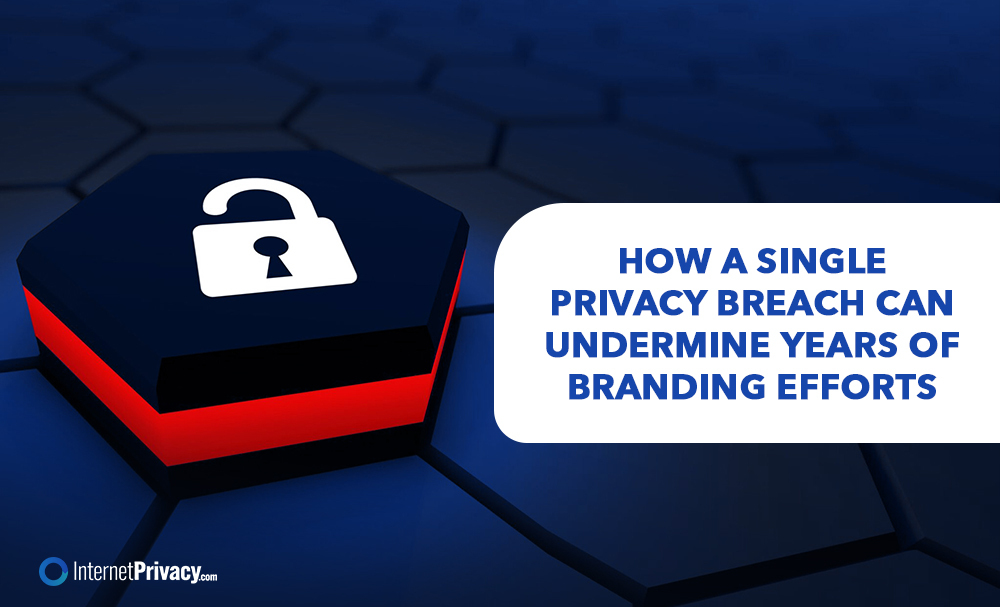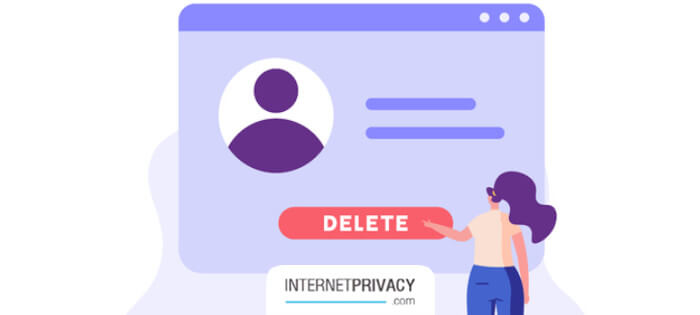How a Single Privacy Breach Can Undermine Years of Branding Efforts

Privacy has never been more crucial. A single privacy breach can severely damage a brand’s reputation, erode customer trust, and result in significant financial and legal consequences. This highlights the importance of robust data security measures and data confidentiality protocols.
What Is a Privacy Breach?
A privacy breach occurs when personal data, including sensitive information like social security numbers, financial information, or health records, is accessed, disclosed, or used without authorization. This can lead to substantial harm to individuals and organizations alike, increasing the risk of identity theft and other types of data misuse. With the rise in cyberattacks, software vulnerabilities, and third-party breaches, industries like healthcare and financial services must take extra precautions to safeguard sensitive data.
Regulatory scrutiny is intensifying, making it essential for organizations to prioritize data protection and adhere to cybersecurity laws, such as those enforced by the U.S. Department of Health and Human Services Office for Civil Rights. This helps prevent the misuse of sensitive information and reduces the risks of data theft and internal leaks.
In this article, we’ll delve into the causes and effects of privacy breaches, their impact on data security and compliance, and the role of cybersecurity consultants and legal counsel in ensuring protection.
Why Is Privacy Important for Brands?
Privacy is a critical issue for brands as it directly affects customer trust and public perception, which are crucial for maintaining a positive reputation. As privacy concerns grow and compliance requirements tighten, brands must invest in robust security measures to protect consumer data and ensure the confidentiality of sensitive information.
Failing to protect privacy can result in substantial financial losses, including compliance penalties and long-lasting damage to stakeholder relationships. Brand leaders must implement effective risk management strategies to avoid these pitfalls, especially as digital transformation and legacy systems evolve.
How Can a Privacy Breach Affect a Brand’s Reputation?
A privacy breach can have an immediate and devastating impact on a brand’s reputation. The aftermath typically involves negative media attention, increased public concern over security breaches, and a loss of customer trust. Organizations must act swiftly to manage the situation, report the incident, and control damage to their public image.
In the long term, a breach can reduce customer loyalty, heighten perceived risks, and hurt future business opportunities. To mitigate these risks, brands need to conduct thorough risk assessments and strengthen their security infrastructure, focusing on protecting network servers and preventing unauthorized access.
What Are the Immediate Effects of a Privacy Breach?
The immediate effects of a privacy breach often include significant financial losses and a sharp decline in customer trust. Organizations must quickly take corrective action to comply with regulatory requirements and restore security. The process of managing public perception and addressing customer concerns can make recovery more difficult.
Financial consequences include remediation costs, regulatory fines, and increased cybersecurity insurance premiums. Studies show that breaches can lead to a 20% reduction in customer retention, making recovery more challenging.
Companies often need to invest in public relations efforts and risk management strategies to rebuild trust. Incident reporting is not just about compliance; it’s crucial for maintaining public confidence and showing customers that their privacy and security are priorities.
How Does a Privacy Breach Impact Customer Trust?
A privacy breach can undermine customer trust as people become increasingly concerned about the security of their personal data. The emotional impact is significant, as many customers feel violated and insecure. This loss of trust can lead to decreased sales, as seen in cases like the data breach at a major retail company. Despite efforts like offering credit monitoring, sales declined due to the lasting effects of the breach on customer confidence.
In contrast, a technology company that proactively addressed a breach with stronger security measures and transparent communication was able to restore customer trust and even increase new user registrations.
These examples show that rebuilding trust requires addressing the issue’s emotional and financial dimensions. Without actively managing customer concerns, companies risk long-term damage to their reputation.
What Are the Long-term Consequences of a Privacy Breach?
The long-term consequences of a privacy breach can be severe, affecting a brand’s reputation, financial stability, and compliance efforts. Rebuilding customer trust is a daunting challenge that may require heavy investment in data governance and cybersecurity measures. Brands may also face ongoing financial consequences from compliance costs and legal action.
Companies that experience a breach often need to implement stricter data protection measures, like encryption and regular audits, which can increase operational costs. Examples like Equifax and Medibank show how these investments become necessary after a breach but also serve as a reminder of the long-term financial impact.
What Are the Legal Implications of a Privacy Breach?
Privacy breaches often carry significant legal consequences. Organizations must comply with a complex web of cybersecurity laws and regulations, such as those set by the Office of the Australian Information Commissioner. Failing to comply can result in penalties, lawsuits, and reputational damage.
It’s also essential for companies to appoint data protection officers to oversee compliance efforts and reduce legal exposure. A solid data governance strategy protects consumer rights and maintains brand integrity.
How Can Brands Prepare for and Prevent Privacy Breaches?
Brands, particularly in sensitive sectors like healthcare and technology, can prevent privacy breaches by implementing robust security practices and fostering a data protection culture. Proactive risk management strategies, such as regular audits and staff training on compliance, are crucial for reducing the likelihood of breaches.
Public awareness and transparency about privacy practices can also strengthen customer trust and demonstrate a commitment to protecting consumer data.
What Are the Best Practices for Data Protection and Mitigation?
To minimize the risk of privacy breaches, brands must adopt best practices for data protection. These include conducting regular risk assessments, implementing encryption technologies, and ensuring strict access controls. Organizations can protect consumer information by prioritizing data confidentiality while enhancing their overall reputation.
How Can Brands Ensure Compliance with Privacy Laws?
Ensuring compliance with privacy laws, like HIPAA for healthcare providers, is essential for protecting consumer data and avoiding legal consequences. Brands must implement strong data protection practices, conduct regular audits, and stay up-to-date with evolving regulations. Ongoing education and training are also key to ensuring all stakeholders understand their role in maintaining privacy.
What Steps Should Brands Take After a Privacy Breach?
After a privacy breach, brands must act swiftly to mitigate the damage to their reputation. This includes thorough incident reporting, transparent communication with affected customers, and a solid recovery plan. Brands should analyze the financial impact, comply with legal requirements, and engage with industry experts to guide recovery efforts.
How Should Brands Communicate with Customers and the Public?
Effective communication is vital after a privacy breach. Brands should provide timely and clear updates about the breach, outline the actions taken to resolve the issue, and offer support to affected customers. This transparency helps rebuild trust and reassures customers that their security is a top priority.
How Can Brands Rebuild Trust and Repair Their Reputation?
Rebuilding trust after a privacy breach requires ongoing communication, transparency, and a strong commitment to security. Brands should focus on customer engagement, enhance security measures, and ensure compliance with privacy laws. By taking these steps, brands can turn a crisis into an opportunity to strengthen relationships and improve their reputation.
Conclusion: The Importance of Prioritizing Privacy for Brands
Prioritizing privacy is critical for brands. It impacts customer trust, brand reputation, and overall business success. By implementing strong data protection practices, adhering to regulations, and maintaining transparency, brands can protect their reputation and thrive in an increasingly privacy-conscious market.





